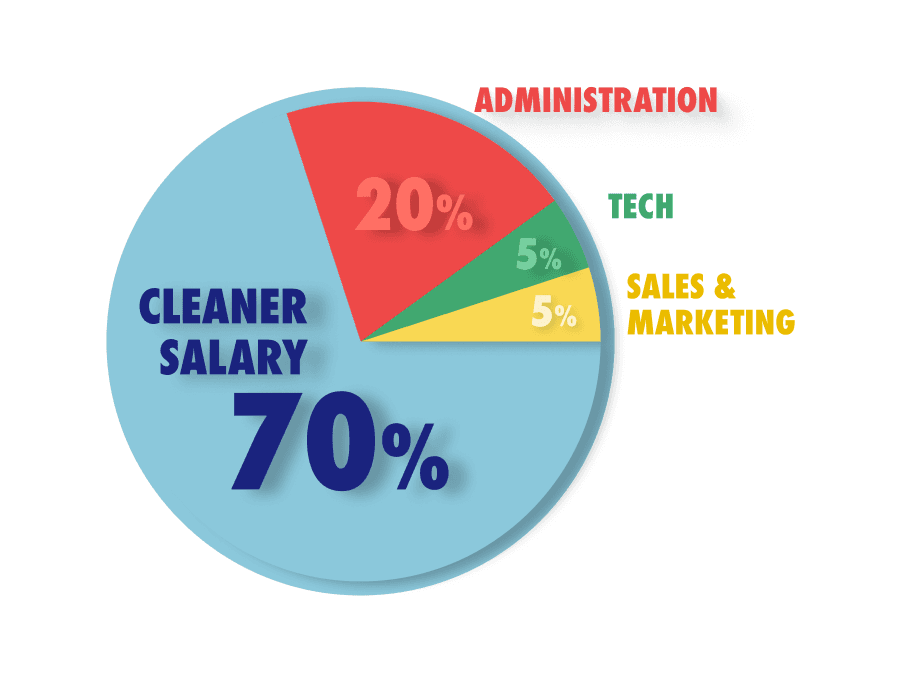Stop reading if you don't buy cleaning services illegally.
We made this page for those who do.
Why is the illegal market a problem?
Contrary to popular belief and misconception, we're not talking about a benevolent side-hustle where cleaners get some extra pocket money by avoiding taxes. The illegal cleaning market is criminal and it affects and destroys vulnerable people's lives on a daily basis. The illegal cleaning market dehumanizes refugees and immigrants by taking away their basic rights and protection. There are of course exceptions but, at worst, the illegal cleaning market is modern day slavery (see the story of Saran) – and as a country that awards the Nobel Peace Prize, we can surely do better!
THREE RED FLAGS
Ever wondered if your cleaning company is legit? We've put together this expandable checklist so you know exactly what to look out for.
- Does the cleaner carry a HMS-card?
Make sure to request the HMS-card from your cleaner, as it is mandatory for all cleaning companies to provide one for all employees. The purpose is for cleaners to be able to identify themselves, who they work for and that this is a legitimate cleaning company. Read more, here.
- Does the company show up in the Cleaning Register?
You should always check if the company is registered, here. To be able to apply for approval, the company has to be registered and have an organisation number registered in the unit registry.
- Is the price suspiciously low?
Whenever you see home cleaning prices below 300 kr/h, it's good to question whether someone is taking a big bite from the cleaners' slice of the cake or whether some other sketchy ploy is afoot.

What's wrong with being cheap?
Saving money is nice and all, but there are instances where we simply can’t afford to do it – when it is being done by compromising social responsibility.
Illegal cleaning services actually cost us all a fortune in human rights—as well as in lost tax revenue.
To make this more concrete, we have attached a pie chart of what you are paying for when buying from Freska. We invite other companies to do the same and customers to demand this information. Let's change the industry together!
We should look to our neighbours
Freska has thousands of customers in Norway, Sweden and Finland. In Sweden and Finland, there's this thing called tax credit for household expenses (RUT). It means that the government covers a big chunk of the price (50% in Sweden and 40% in Finland) when you buy services like home cleaning from a legit company. This is done in order to:
- make the services affordable for more people
- encourage people to buy from legit service providers
- erradicate the illegal/informal market
- create real jobs in the cleaning industry
This system has had such positive results in Finland that the government just decided to increase the credit you can claim from 40% to 60% in 2022.
In the countries where you can claim tax credit for household expenses, the illegal/informal cleaning market has almost vanished. In Norway, where you do not get tax credit for household expenses, 90% of all cleaning services are bought from the illegal/informal cleaning market (latest data from NHO, 2016). Coincidence?
Do you agree that cleaners deserve better?
We couldn't be happier to have you on the team! Heres what you can do:
1. Use our checklist to make sure you're using a responsible cleaning company where the cleaners' rights are being taken care of.
2. Start a conversation about the illegal cleaning market with your family, friends, colleagues, local politicians and help us put Norway's cleaners' worker rights on the agenda. There's strength in numbers!
3. Share this campaign on social media and demand #RealJobs for cleaners.
For press and media inquiries
please contact media@freska.no.